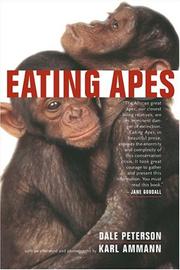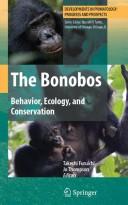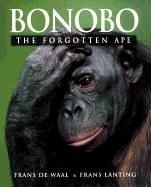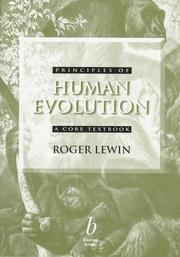| Listing 1 - 10 of 29 | << page >> |
Sort by
|
Book
ISBN: 9789604760695 Year: 2010 Publisher: Athēna : Mouseio Mpenakē,
Abstract | Keywords | Export | Availability | Bookmark
 Loading...
Loading...Choose an application
- Reference Manager
- EndNote
- RefWorks (Direct export to RefWorks)
Kalvos, Andreas, --- Ape italiana a Londra. --- Italy --- History
Book
ISBN: 0906545048 Year: 1980 Publisher: Cambridge : Journal of reproduction and fertility,
Abstract | Keywords | Export | Availability | Bookmark
 Loading...
Loading...Choose an application
- Reference Manager
- EndNote
- RefWorks (Direct export to RefWorks)

ISBN: 1282358006 9786612358005 0520938429 9780520938427 9781282358003 0520243323 9780520243323 0520230906 9780520230903 6612358009 Year: 2003 Publisher: Berkeley University of California Press
Abstract | Keywords | Export | Availability | Bookmark
 Loading...
Loading...Choose an application
- Reference Manager
- EndNote
- RefWorks (Direct export to RefWorks)
Eating Apes is an eloquent book about a disturbing secret: the looming extinction of humanity's closest relatives, the African great apes-chimpanzees, bonobos, and gorillas. Dale Peterson's impassioned exposé details how, with the unprecedented opening of African forests by European and Asian logging companies, the traditional consumption of wild animal meat in Central Africa has suddenly exploded in scope and impact, moving from what was recently a subsistence activity to an enormous and completely unsustainable commercial enterprise. Although the three African great apes account for only about one percent of the commercial bush meat trade, today's rate of slaughter could bring about their extinction in the next few decades. Supported by compelling color photographs by award-winning photographer Karl Ammann, Eating Apes documents the when, where, how, and why of this rapidly accelerating disaster. Eating Apes persuasively argues that the American conservation media have failed to report the ongoing collapse of the ape population. In bringing the facts of this crisis and these impending extinctions into a single, accessible book, Peterson takes us one step closer to averting one of the most disturbing threats to our closest relatives.
Apes --- Wildlife conservation --- Ape meat industry --- african apes. --- african forests. --- american media. --- ape populations. --- ape slaughter. --- asian companies. --- bonobos. --- bush meat. --- central africa. --- chimpanzees. --- color photographs. --- commercial ape meat. --- conservation. --- consumption of animals. --- easy to read. --- endangered species. --- environmental loss. --- european companies. --- evolutionary relatives. --- expose piece. --- extinction. --- gorillas. --- great apes. --- karl ammann. --- logging. --- nonfiction. --- population collapse. --- primates. --- primatology.
Book
Year: 2002
Abstract | Keywords | Export | Availability | Bookmark
 Loading...
Loading...Choose an application
- Reference Manager
- EndNote
- RefWorks (Direct export to RefWorks)
Wildlife as food --- Endangered species --- Wildlife conservation --- Ape meat industry --- Food of animal origin --- Nature --- Technology & engineering

ISBN: 1281141178 9786611141172 0387747877 0387747850 1441925724 Year: 2008 Publisher: New York : Springer,
Abstract | Keywords | Export | Availability | Bookmark
 Loading...
Loading...Choose an application
- Reference Manager
- EndNote
- RefWorks (Direct export to RefWorks)
The Bonobos: Behavior, Ecology, and Conservation provides a succinct yet comprehensive review of the current state of research and conservation efforts regarding the bonobos. The bonobos are one of the least known of the great apes although they are one of our closest living relatives, sharing 98.8% of DNA sequences. This text summarizes and analyses scientific research on the bonobos, as well as presents the most up-to-date findings from the field and captive studies. Further, the text presents compelling findings and solid population assessments for estimating wild population density and distribution. The first section of the book presents research progress in the study of behavior of captive bonobos. These behavioral studies make important strides in our understanding of bonobo social relationships, agonistic dominance, social play, and signaling. The outcomes concerning high social status of females and flexible and complicated social communication may shed light on the study of evolution of both bonobos and humans. The second section deals with ecological studies that have been carried out since the post- conflict resumption of field research in Democratic Republic of Congo. Methodologies that have been improved over recent years in the study of the other great apes have now been applied to the study of bonobos, which enables comprehensive comparison for understanding hominids'’ adaptation to the African tropical forest. Furthermore, differing and newly -developed census methods have been employed to reveal the current status of bonobos in Africa’s largest forested protected area, the Salonga National Park. The text's final section centers on the most urgent conservation priorities and reviews local and global aspects of the factors threatening the wild bonobo population. The role of humans in the future of bonobo conservation is examined. Further, the first ever large-scale and small-scale regional surveys are presented, as well as how the world’s only sanctuary for orphaned bonobos can respond to offer estimatesthe consequences of population density and distribution through reliable quantitative data. These studies provide compelling results and a solid population assessment.the live animal trade. Encouraging reports detail the presence and abundance of bonobos existing across their historic range. These contributions not only illuminate the current status of the bonobobonobos but allow for critically designing the next steps for the continuation of their future. About the Editors: Dr. Takeshi Furuichi is Professor in the Faculty of International Studies of Meiji-Gakuin University, Japan. He has carried out ecological and behavioral studies of bonobos, chimpanzees, and gorillas all across Africa for more than 20 years, in order to reveal the evolutionary process of hominids. Dr. Jo Thompson is the Director of the Lukuru Wildlife Research Project in the Democratic Republic of Congo. She has maintained her field work for more than 16 years focused on bonobo ecology and conservation in alliance with the local people.
Bonobo. --- Bonobo --- Conservation. --- Bonobo chimpanzee --- Dwarf chimpanzee --- Gracile ape --- Gracile chimpanzee --- Lesser chimpanzee --- Pan paniscus --- Pygmy chimpanzee --- Pan (Mammals) --- Animal ecology. --- Developmental biology. --- Zoology. --- Animal Ecology. --- Developmental Biology. --- Biology --- Natural history --- Animals --- Development (Biology) --- Growth --- Ontogeny --- Zoology --- Ecology

ISBN: 0520205359 9780520205352 Year: 1997 Publisher: Berkeley Los Angeles London University of California Press
Abstract | Keywords | Export | Availability | Bookmark
 Loading...
Loading...Choose an application
- Reference Manager
- EndNote
- RefWorks (Direct export to RefWorks)
Most people have never heard of the bonobo, an intriguing member of the great ape family, despite the fact that bonobos are as close to us as their much better known relatives, the chimpanzees. Scientists are only beginning to explore the social life of the bonobo. Whereas chimpanzees are known for male power politics, cooperative hunting, and intergroup warfare, bonobo society is egalitarian and peaceful. One major distinction of the bonobo seems to be sensitivity to others. Now, two world-renowned experts in their fields, primatologist Frans de Waal and wildlife photographer Frans Lanting, have joined to celebrate this wonderful and little-known creature. Theirs is the first extended profile of the bonobo for the general reader. It presents the most up-to-date information on the species, including comparative data from zoo populations and from the field and interviews with leading bonobo experts. This is a book for all primate-watchers, amateur and specialist, for anyone interested in the origin of our own species, and for those studying evolution or gender relations.
Bonobo --- Chimpansee [Dwerg] --- Chimpanzee [Pygmy ] --- Chimpanzee nain --- Chimpanzé nain --- Dwergchimpansee --- Pan paniscus --- Pygmy chimpanzee --- 599.8 --- Bonobo chimpanzee --- Dwarf chimpanzee --- Gracile ape --- Gracile chimpanzee --- Lesser chimpanzee --- Pan (Mammals) --- Quadrumanes. Primates --- Behavior --- Bonobo. --- Behavior. --- 599.8 Quadrumanes. Primates
Book
ISSN: 01703196 ISBN: 3447040602 9783447040600 Year: 2000 Volume: 49 Publisher: Wiesbaden: Harrassowitz,
Abstract | Keywords | Export | Availability | Bookmark
 Loading...
Loading...Choose an application
- Reference Manager
- EndNote
- RefWorks (Direct export to RefWorks)
Addis Ababa (Ethiopia) --- History --- Addis Abeba (Ethiopia) --- ʼAdis ʼAbabā (Ethiopia) --- Atis Apēpa (Ethiopia) --- Ādīs Ābeba (Ethiopia) --- Addis Abbaba (Ethiopia) --- Addisaaba (Ethiopia) --- Finfinne (Ethiopia) --- History. --- Addis Ababa (Ethiopia) - History

ISBN: 0865425426 9780865425422 Year: 1998 Publisher: Malden, Mass. Blackwell Science
Abstract | Keywords | Export | Availability | Bookmark
 Loading...
Loading...Choose an application
- Reference Manager
- EndNote
- RefWorks (Direct export to RefWorks)
Human evolution. --- Biological Evolution. --- Hominidae. --- Paleontology. --- Phylogeography --- Hominini --- Pongidae --- Apes --- Hominids --- Hominins --- Homo --- Ape --- Hominid --- Hominin --- Homininus --- Anthropology --- Evolution, Biological --- Sociobiology --- Evolution (Biology) --- Physical anthropology --- Evolutionary psychology --- Human beings --- Origin --- Human evolution --- Biological Evolution --- Hominidae --- Paleontology --- Taphonomy

ISBN: 9780521449984 0521449987 0521308801 9780521308809 9780511525674 Year: 1990 Publisher: Cambridge Cambridge University Press
Abstract | Keywords | Export | Availability | Bookmark
 Loading...
Loading...Choose an application
- Reference Manager
- EndNote
- RefWorks (Direct export to RefWorks)
Evolution. --- Hominids --- Physical anthropology --- Homo erectus. --- Evolution --- Hominidés --- Anthropologie physique --- Homo erectus --- Pithecanthropus erectus --- Hominidae. --- Hominini --- Pongidae --- Hominins --- Homo --- Ape --- Hominid --- Hominin --- Homininus --- Fossil hominids --- Biological Evolution --- Hominidae --- Apes --- Anthropology --- Evolution, Biological --- Sociobiology --- Pithecanthropus erectus.
Book
ISBN: 3030279200 3030279197 Year: 2020 Publisher: Cham Springer Nature
Abstract | Keywords | Export | Availability | Bookmark
 Loading...
Loading...Choose an application
- Reference Manager
- EndNote
- RefWorks (Direct export to RefWorks)
This open access book summarizes the multi-disciplinary results of one of China’s main primatological research projects on the endemic Tibetan macaque (Macaca thibetana), which had continued for over 30 years, but which had never been reported on systematically. Dedicated to this exceptional Old World monkey, this book makes the work of Chinese primatologists on the social behavior, cooperation, culture, cognition, group dynamics, and emerging technologies in primate research accessible to the international scientific community. One of the most impressive Asian monkeys, and the largest member of its genus, the Tibetan macaque deserves to be better known. This volume goes a long way towards bringing this species into the spotlight with many excellent behavioral analyses from the field.- Frans de Waal, Professor of Psychology, Emory University, USA. Macaques matter. To understand primate patterns and trends, and to gain important insight into humanity, we need to augment and expand our engagement with the most successful and widespread primate genus aside from Homo. This volume focuses on the Tibetan macaque, a fascinating species with much to tell us about social behavior, physiology, complexity and the macaque knack for interfacing with humans. This book is doubly important for primatology in that beyond containing core information on this macaque species, it also reflects an effective integrated collaboration between Chinese scholars and a range of international colleagues—exactly the type of collaborative engagement primatology needs. This volume is a critical contribution to a global primatology. - Agustín Fuentes, Professor of Anthropology, University of Notre Dame, USA. I have many fond memories of my association with Mt. Huangshan research beginning in 1983, when together with Professor Qishan Wang we established this site. It is such a beautiful place and I miss it. It is gratifying to see how far research has progressed since we began work there, becoming more internationalized and very much a collaborative endeavor under the long-term direction of Professor Jin-Hua Li and colleagues. This book highlights the increased interest in this species, representing a variety of disciplines ranging from macro aspects of behavior, cognition and sociality, to micro aspects of microbes, parasites and disease, authored by a group of renowned Chinese and international primatologists. I applaud their efforts and expect more interesting work to come from this site in the years ahead.- Kazuo Wada, Professor Emeritus, Kyoto University, Japan.
Behavioral sciences. --- Physical anthropology. --- Cognitive psychology. --- Animal welfare. --- Animal ecology. --- Wildlife. --- Fish. --- Behavioral Sciences. --- Biological and Physical Anthropology. --- Cognitive Psychology. --- Animal Welfare/Animal Ethics. --- Animal Ecology. --- Fish & Wildlife Biology & Management. --- Fish --- Pisces --- Aquatic animals --- Vertebrates --- Fisheries --- Fishing --- Ichthyology --- Animals --- Zoology --- Ecology --- Abuse of animals --- Animal cruelty --- Animals, Cruelty to --- Animals, Protection of --- Animals, Treatment of --- Cruelty to animals --- Humane treatment of animals --- Kindness to animals --- Mistreatment of animals --- Neglect of animals --- Prevention of cruelty to animals --- Protection of animals --- Treatment of animals --- Welfare, Animal --- Psychology, Cognitive --- Cognitive science --- Psychology --- Biological anthropology --- Somatology --- Anthropology --- Human biology --- Abuse of --- Social aspects --- Macaca. --- Behavior, Animal. --- Animal Welfare. --- Animal Cruelty --- Cruelty, Animal --- Vivisection --- Animal Use Alternatives --- Euthanasia, Animal --- Animal Behavior --- Animal Behaviors --- Behaviors, Animal --- Ethology --- Ape, Barbary --- Ape, Black --- Ape, Celebes --- Barbary Ape --- Black Ape --- Celebes Ape --- Macaque --- Apes, Barbary --- Apes, Black --- Apes, Celebes --- Barbary Apes --- Black Apes --- Celebes Apes --- Macacas --- Macaques --- Autotomy Animal --- Life sciences --- Behavioral sciences --- Physical anthropology --- Cognitive psychology --- Animal welfare --- Animal ecology --- Wildlife --- Fishes.
| Listing 1 - 10 of 29 | << page >> |
Sort by
|

 Search
Search Feedback
Feedback About UniCat
About UniCat  Help
Help News
News